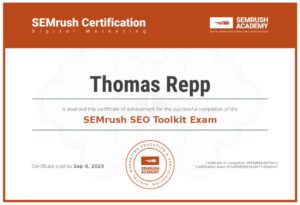 The Digital Marketing Battleground: Search vs. AI
The Digital Marketing Battleground: Search vs. AI
For years, mid-size B2B industrial marketers have relied on search engines like Google to drive visibility, leads, and revenue. Search Engine Optimization (SEO), pay-per-click (PPC) ads, and content marketing have been the backbone of industrial digital marketing strategies. But now, the game is changing at breakneck speed. AI-driven search tools ... like ChatGPT, Grok3, and Perplexity ... are redefining how B2B buyers discover suppliers, research solutions, and make purchasing decisions.
If you’re a mid-size B2B industrial marketer, here’s your wake-up call: AI isn’t the future. It’s happening right now. If your digital strategy still revolves solely around traditional search, you’re already behind.
How Search and AI Differ ... and Why It Matters
Google and other search engines rank content based on SEO signals ... backlinks, keyword density, domain authority, and user engagement. It’s a game of rankings, and for decades, marketers have optimized content to climb the ladder. AI-driven search, on the other hand, doesn’t play by those rules.
Instead of delivering ranked links, AI search tools synthesize responses from multiple sources, prioritizing contextual relevance over keyword optimization. That means even if your site ranks #1 in Google for “industrial fluid pumps,” an AI chatbot may not reference you at all if your content isn’t structured for AI-driven discovery.
Why Mid-Size B2B Industrials Face a Unique Challenge
The mid-size B2B industrial market has long been underserved in digital marketing. Large corporations have dedicated marketing teams and agencies optimizing every digital touchpoint, while smaller businesses rely on localized networks and word-of-mouth. Mid-size industrial companies are stuck in between ... often lacking the in-house expertise to execute cutting-edge strategies but needing to compete in an increasingly digital-first marketplace.
And now, the rise of AI is widening that gap. While Fortune 500 companies are already adapting, most mid-size B2B firms are still trying to master SEO in a world that’s shifting beyond it.
The New Digital Moat: Preparing for AI Search
Early adopters of AI-driven content strategies will gain a massive competitive edge ... what I call a “digital moat.” Here’s how you can start building yours:
1. Rethink Content for AI Discoverability
-
AI search prioritizes well-structured, authoritative, and natural language-based content.
-
Instead of just optimizing for keywords, focus on answering industry-specific questions concisely and clearly.
-
Create FAQ-style content, structured data, and expert-led insights to increase the likelihood of AI referencing your site.
2. Leverage AI for Content Creation and SEO
-
AI tools like HubSpot’s AI-driven SEO analysis and content generators can help you create content tailored for both search engines and AI-driven platforms.
-
AI-assisted keyword research can identify gaps where traditional SEO efforts fall short.
-
Use AI-generated analytics to determine what topics resonate most with your audience.
3. Invest in Brand Authority and Thought Leadership
-
AI tools favor authoritative sources. If your brand is cited across multiple industry sources, publications, and reports, AI will be more likely to pull your content into its responses.
-
Consider guest blogging, expert interviews, and collaborations with industry influencers to establish credibility.
4. Adapt to Multi-Platform Digital Marketing
-
Don’t rely solely on Google. Test how your content appears in AI-driven search tools like ChatGPT, Grok3, and Perplexity.
-
Diversify your content formats—video, interactive tools, and data-driven insights are more likely to be picked up by AI.
5. Optimize for Conversational Search & Natural Language Queries
-
AI users ask direct questions, not just keyword-based searches. Optimize for phrases like:
-
“What’s the best industrial automation system for precision manufacturing?”
-
“How do I reduce downtime in my CNC machining operation?”
-
-
This shift makes long-tail, question-based content more valuable than ever.
The Competitive Advantage: Act Now or Get Left Behind
Here’s the reality: most mid-size B2B industrial firms are unprepared for this shift. That presents an unmatched opportunity for those willing to adapt early. While your competitors are still focused solely on ranking in Google, you can create a content ecosystem that dominates both search and AI-driven discovery.
Waiting is not an option. The industrial digital marketing landscape is changing faster than ever. If you don’t pivot now, your competitors will build their digital moat before you even step onto the field.
Final Thoughts
The rise of AI search is not a death sentence for SEO ... it’s an evolution. The strategies that worked in traditional search will still have value, but they must be complemented with AI-focused tactics to ensure continued visibility and lead generation.
AI is reshaping how B2B buyers find, evaluate, and select suppliers. If you want to future-proof your business, the time to act is right now.
Want to know more? Go to What We Do or Contact Me in the menu above. Or give me a call at 269-375-0349.
Author:Tom Repp
A passionate marketer attempting to change the way industrial marketers leverage the web as a growth-oriented, lead generation machine. View all posts by Tom Repp




